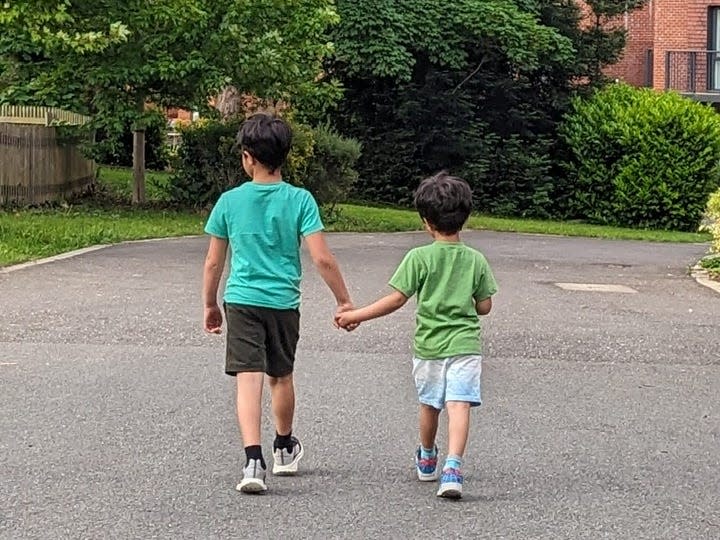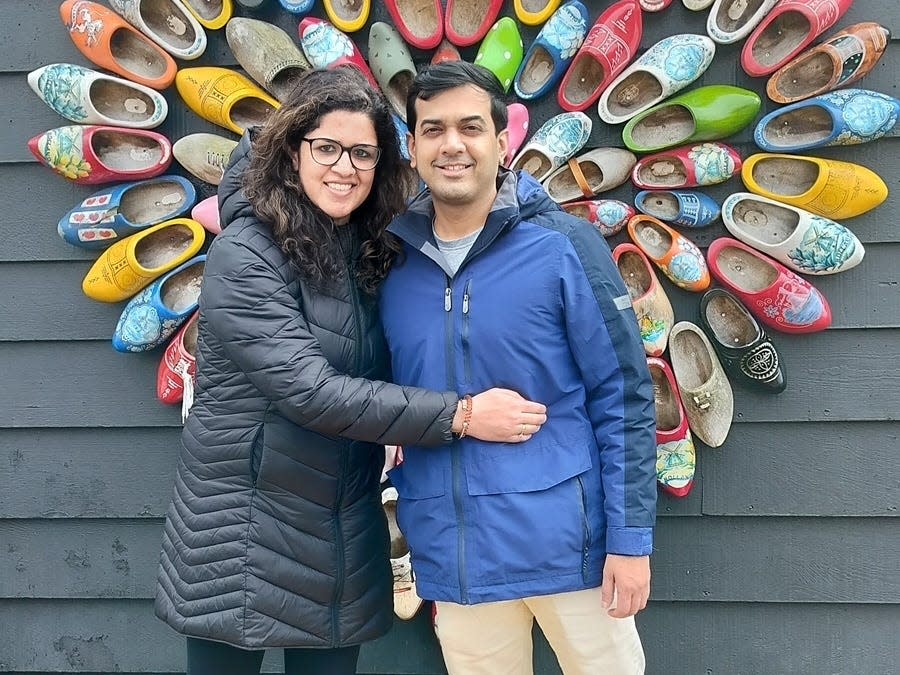At 33, I was a new mom and couldn't move my hand. 3 years later, I got a diagnosis that changed everything.

Snehal Amembal is a working mom and was diagnosed with Young Onset Parkinson's Disease at 36.
She struggled to raise her children and continue working in HR, so she chose an alternative career path.
Now, a published author, she's grateful to Parkinson's for motivating her to pursue her passion.
"Jellyfish doo doo doo doo doo doo," the line from "Baby Shark Dance" kept playing on loop as my 11-month-old son looked at me expectantly, wanting me to wiggle my fingers and dance along.
Instead, he saw his mom struggling. The lady on the TV, however, seemed to be having no problems at all. And so began my journey of living with Young Onset Parkinson's Disease (YOPD). At the time, I was only 33 and had no clue that my inability to effectively move the fingers of my right hand would, in fact, turn out to be Parkinson's disease — an incurable, degenerative neurological condition.
Three years later, at 36, I received a formal diagnosis — now with two children, the oldest was 3 and my second son was 18 months. In hindsight, that first year after my diagnosis was a blur. I wasn't processing anything at an emotional level. I was on maternity leave, and at the time, I was working as an HR manager for a private healthcare organization. We also had the pandemic to deal with.
I remember operating in a sort of robot mode — just doing, doing, doing. Nobody asked me: "So how do you feel about this condition?" Feelings were processed much later when my kids became physically less dependent on me.
Now, at 39, my kids are a tad more grown up. However, that expectant look on the 6-year-old's face as I sometimes struggle with opening snack packets or the way the 4-year-old gets confused when I deal with fastening seat belts is still the same. And those looks break my heart. It's in those moments that I feel like I'm failing them in some way.
However, soon after, reality strikes, and I need to get on with my day and get down to work because I want my boys to have a normal childhood. I don't want to burden their little hearts with the harsh realities of my condition.
But I can't stop time. They're growing up, and as every year passes by, I have observed them noticing more and more about how sometimes I have to slow down, drag my foot, or lie down in the middle of the day because I feel too tired.

My career as a writer came about quite organically.
As a family, my husband (my biggest support through all of this) and I decided that taking into consideration the needs of our children, the demands of his job, and the often unpredictable nature of my Parkinson's symptoms, it would be best for me to explore an alternative career path and my writing career slowly began to take shape. It was uncharted territory for me from a professional standpoint. I used to write only as a hobby.
I wanted to establish myself as a writer not only to provide that sense of continuity for my kids but also to ensure that my working identity, which has always been a huge part of my sense of self, continues to be preserved. Writing helped me cope with the challenges that YOPD brings with it — not just the motor symptoms but the more invisible ones like anxiety, depression, and incontinence, to name a few.
I'm happy to say that I have three poetry chapbooks published and am working on my first memoir. Writing has always been my passion, so I'm grateful to Parkinson's for unknowingly motivating me to pursue my passion and become a professional writer. What brings me absolute joy, though, is when my kids are asked what their mom does. They both happily chime in with "writer." "And she has written three books!!" my older son adds proudly.
Part of providing a normal childhood has meant avoiding denial
As part of my desire to provide my kids with a normal childhood, I don't want them to be living in denial. So they are aware of the symptoms mommy experiences, but they are not yet able to comprehend that these are all linked to a bigger cause, which is PD.
I'll know when they will be ready, so we will park that conversation for a few more years when they are emotionally more able and mature to absorb the significance of the revelation.

Parkinson's has never defined me
I will never let it define me. It cannot stop me from living my life. As a mother, I am fiercely protective of my children. I ensure that they are able to enjoy all activities and outings just like any other child, albeit with some minor adjustments that help me cope better with my symptoms. We go to the supermarket at off-peak hours, and I try to organize playdates at our place. We also travel a lot, and I believe this has helped my kids develop more well-rounded, empathetic personalities.
Mr Parkinson's may have taken many things from me but my will to live a full life along with my family is something I will not give him the privilege of stealing. Not a chance!
Got a personal essay about parenting that you want to share? Get in touch with the editor: akarplus@businessinsider.com.
Read the original article on Business Insider


